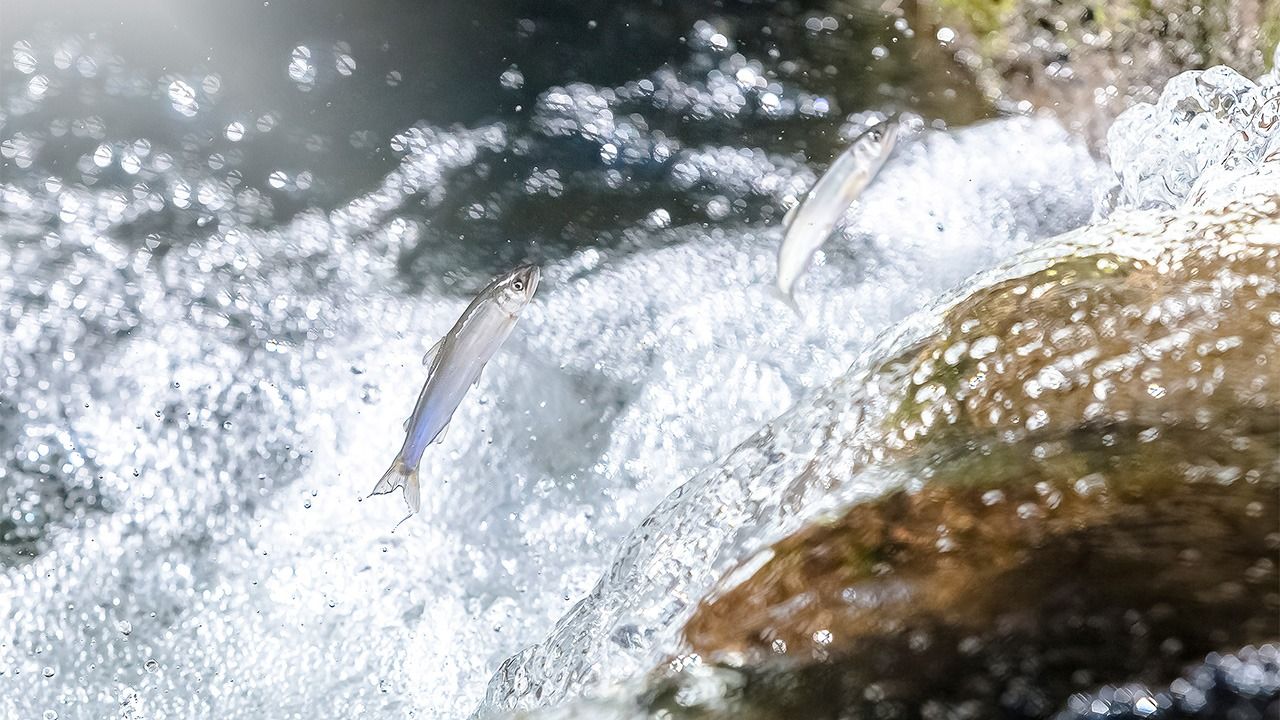
A Journey Through Japanese Haiku
A Gift of Sweetfish
Culture Environment Lifestyle- English
- 日本語
- 简体字
- 繁體字
- Français
- Español
- العربية
- Русский
鮎くれてよらで過行夜半の門 蕪村
Ayu kurete / yora de sugiyuku / yowa no mon
Leaving sweetfish,
you don’t come in—
gate at midnight(Poem by Buson, written in 1768.)
This haiku conjures up a scene on a summer night. There is a sudden knocking on the gate, and the poet wonders what is going on. A friend has caught ayu (sweetfish), and leaving some at the gate, departs without going into the house. This is not a relationship where the visitor insists that they drink together while tucking into the fish, or the poet becomes adamant that the other must stay. The light nature of their friendship matches with that of the freshwater fish, and the poem would not work so well with carp or sea bream.
The haiku has a forebear in an episode involving the fourth-century Chinese poet Wang Ziyou. One night, Wang, enticed by the beauty of the snowy, moonlit landscape, set out to visit his friend Dai Andao. He traveled in a small boat, but upon reaching the gate of Dai’s house at dawn, he returned home. When asked why, he is reported to have said that he visited out of the desire to do so, and returned when that desire had gone.
Buson admired this sense of freedom and disinterest in what society considered to be conventional. His haiku recreates Wang’s attitude, but in substituting succulent ayu for snow viewing, he adds the specificity and reality suitable to his form. The friend who leaves the fish is a little more thoughtful than Wang, who goes home without doing anything.
(Originally published in Japanese. Banner photo © Pixta.)